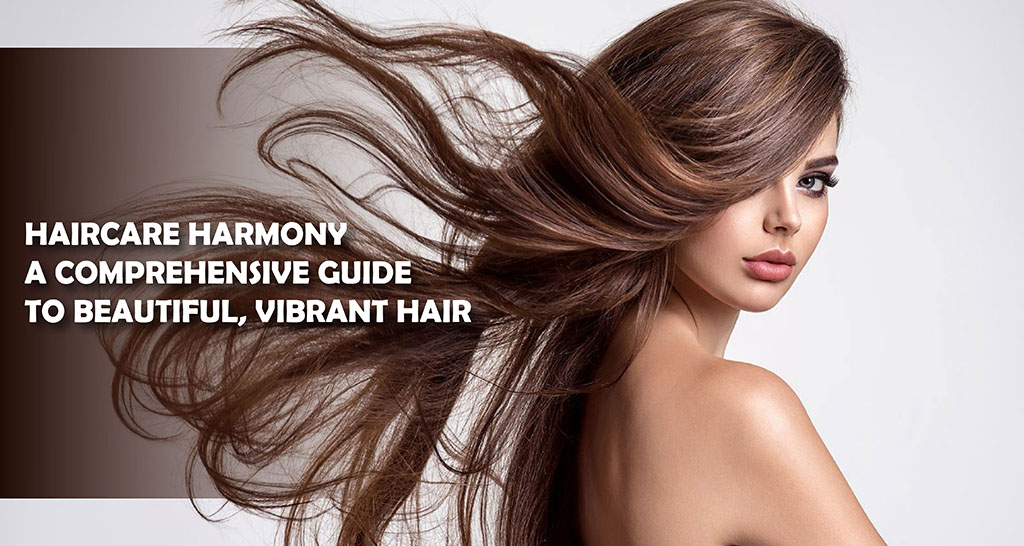Attaining and maintaining beautiful, vibrant hair involves a comprehensive approach considering various factors. This includes establishing mindful care routines, making hair-friendly lifestyle choices, determining the ideal frequency of washing, choosing suitable hair products, incorporating natural styling techniques, and maintaining a nourishing diet. Avoiding common pitfalls and understanding the specific needs of hair can possibly ensure a personalized and stunning expression of individuality.
Determining Hairwash Frequency
Washing your hair is a fundamental step in any hair care routine. The frequency, however, depends on hair type and personal preferences. For those with extremely dry hair, limiting washing to twice a week is recommended. Conversely, individuals with oily scalps may benefit from washing every alternate day.
Use Chemical-Free Shampoos
Choosing the right shampoo is really important for maintaining healthy hair. Opt for gentle, chemical-free shampoos that suit specific hair types. Some shampoos have sulfates and parabens, which can cause skin irritation and hormonal issues over time. So, it is preferable to choose a mild, gentle shampoo for the health of the scalp and hair.
Condition Correctly
Conditioners contribute to hair manageability and protection from environmental factors and heat styling. When applying conditioner to the tips of hair, it is important to avoid the scalp, ensuring thorough rinsing post-application.
Dry Hair Naturally
While blow drying may give hair a polished look, excessive heat styling can damage hair and scalp. Limit the use of heat styling tools to important events and consider air or towel drying after shampooing. Avoid sleeping with wet hair, and be gentle when towel drying to prevent damage to the hair cuticles.
Oiling the Hair Properly
Pre-shampoo treatments such as oiling and massaging provide various benefits, including improved blood circulation, relaxation of muscles, enhanced shine, and nourishment. Choose oils like coconut, almond, or olive oil, and consider using a warm oil treatment occasionally to promote hair health.
Use A Wide-Toothed Comb
Wet hair is fragile and prone to breakage. Allow hair to dry before using a wide-toothed comb, which helps prevent damage.
Style Hair Naturally
Achieve gorgeous curls or waves without subjecting hair to heat damage. Ensure investing in a high-quality heat protectant serum.
Trim Hair Regularly
Regular trims every 6-8 weeks help eliminate split ends, promoting overall hair health. While trimming doesn’t directly affect hair growth at the scalp, it ensures healthier hair.
Drink More Water
Internal hydration, coupled with external care, is essential for balanced and healthy hair. Drinking at least 3 liters of water daily contributes to overall hair health.
Eat Healthy
Maintaining healthy hair is significantly influenced by proper nutrition. Foods rich in proteins and amino acids, such as eggs, berries, nuts, fish, and green leafy vegetables, support optimal hair growth.
Use Hair Caps/Hats
Protect hair from harsh sunlight, which can lead to dryness and damage, by using hats or caps. Additionally, protect hair in chlorinated water by using caps while swimming.
Use Hair Bands
Limit exposure to environmental aggressors by using hair bands, preferably fabric ones instead of plastic. Avoid tight hairstyles to prevent hair loss or traction alopecia.
Use An Old T-Shirt To Dry
Traditional towels can be rough on hair cuticles, potentially causing damage over time. Consider using a soft, old t-shirt to dry wet hair gently.
Hair Care Don’ts
- Hot Showers:Hot showers can strip natural oils from the scalp, leaving it dry and flaky. Opt for cold showers.
- Stress:Manage stress levels, as excessive stress can contribute to hair fall and unhealthy hair.
- Chemicals:Avoid excessive use of chemicals from dyeing, perming, or other hair treatments, as they can disrupt hair growth.
- Hair Styling Products:Prolonged use of heat styling tools can change hair texture, making it dry and prone to breakage.
- Salt Water Hair Wash:Saltwater can damage the hair cuticle, irritate the scalp, and cause tangling. Avoid chlorinated water in swimming pools.
Hair Structure and Porosity
Understanding hair structure, including thickness and porosity, is crucial for effective hair care. Hair thickness varies from fine to coarse, and porosity indicates the hair’s ability to absorb moisture. Damaged hair tends to be more porous, emphasizing the importance of avoiding harsh treatments.
General Hair Care Tips
According to the American Academy of Dermatology (AAD), some general tips for hair care include:
- Shampooing is based on individual needs.
- Use conditioner after each shampoo, focusing on the tips.
- Drying hair gently, either by air drying or using a blow-dryer on the lowest setting.
- Brushing hair when damp with a wide-toothed comb.
Care Instructions for Different Hair Types
- Straight Hair:
- Use gentle shampoos.
- Dry hair gently with a towel.
- Brush or comb hair gently to avoid damage.
- Curly Hair:
- Reduce shampoo usage.
- Air dry or use a diffuser on a blow-dryer.
- Avoid dense combs and brushes.
- Use products designed for curly hair.
- Black Hair:
- Wash no more than once a week.
- Use conditioner at every wash.
- Avoid tight hairstyles and use hot oil treatments.
- Thick Hair:
- Use denser hair products like gels, butter, and masks.
- Consider brushes designed for thick hair.
- Thin Hair:
- Avoid heavy products that may weigh down hair.
- Use dry shampoo.
- Wash hair regularly and apply conditioner only to the ends.
Hair Loss
Understanding normal hair shedding and the potential causes of hair loss is crucial. While shedding 50-150 hairs daily is normal, excessive hair loss may indicate an issue. Causes include genetics, health conditions, medication side effects, and poor hair care practices.
In conclusion, by following these comprehensive hair care tips designed for specific hair types, it can be possible to bid farewell to bad hair days. However, if you are still experiencing persistent issues despite a good routine, consulting a healthcare professional is crucial. Remember to stay hydrated and eat well. By following these simple tips, it can be possible to have great-looking, healthy hair and feel confident every day.








